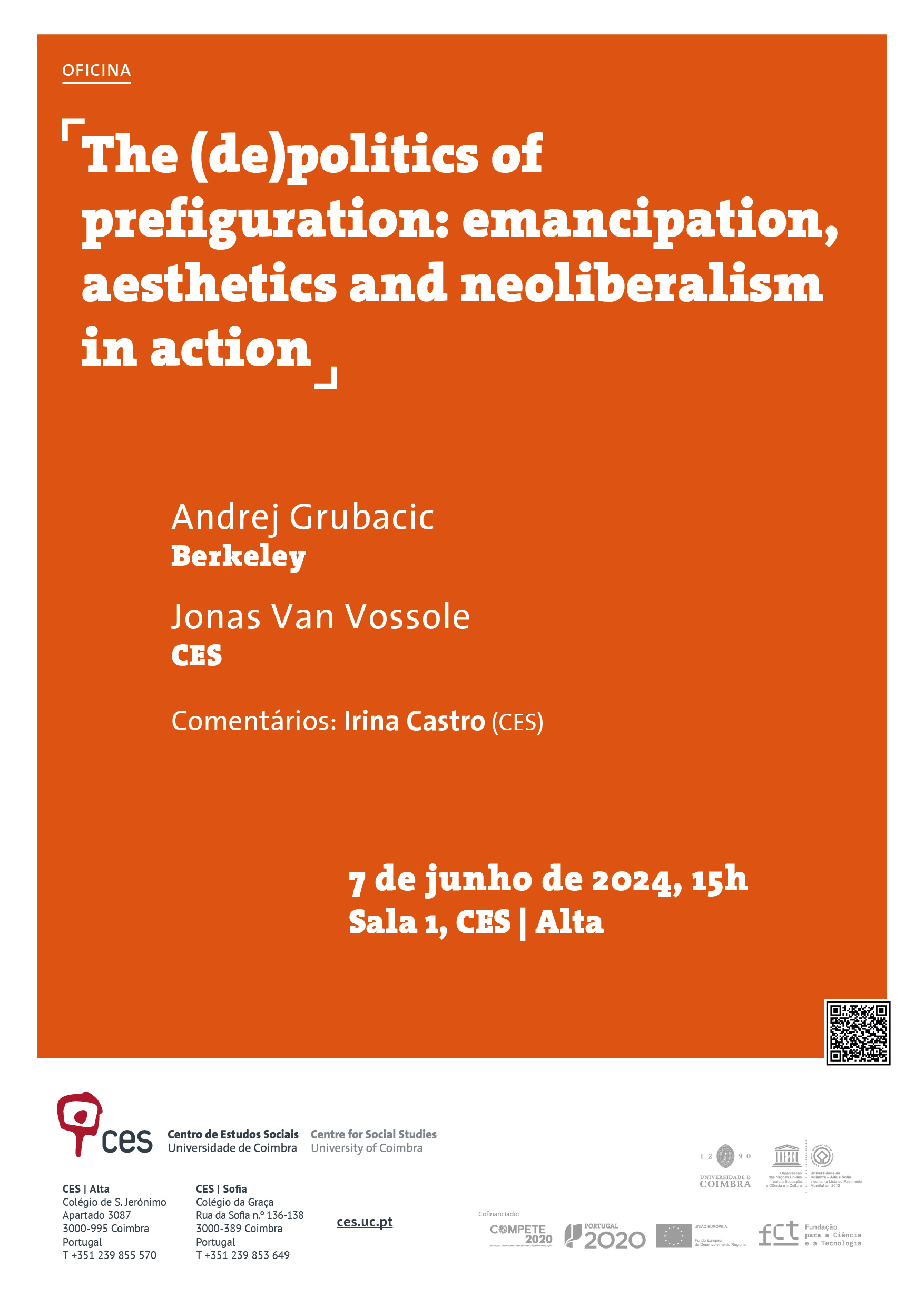Seminário
The (de)politics of prefiguration: emancipation, aesthetics and neoliberalism in action
Andrej Grubacic
Jonas Van Vossole
7 de junho de 2024, 15h00
Sala 1, CES | Alta
Comentários: Irina Castro (CES)
Resumo
Fundamentally, the idea behind prefiguration, is that the form or method of struggle in some way reflects the political goal, a new society. Prefiguration has had an important role in the XIX and XX century workers’ struggles; in anarcho-syndicalism, but also in marxist approaches, such as Luxemburg or Trotsky. The organization of the mass-strike, the collective forms of struggle, planning, sharing, participative decision-making procedures and comradeship were a prefiguration of the world that had to substitute capitalism.
In the last 15 years, the idea of Prefiguration and prefigurative politics has re-occupied a central place as a form of protest. From Occupy-Wall Street, Spanish indignados, Kurdish independentists, to urban squatters and perma-culture supporters; all have incorporated prefiguration as a central theme in their political action. Given the rise of neoliberal consensus and the proclaimed end of history, the context of this prefiguration has however changed dramatically: Prefiguration seized to be an illustration of the stage to be achieved, instead it seems to have become the consensual goal to be achievable in a post-political world; a world in which the politics has been replaced by aesthetics.
Notas biográficas
Andrej Grubacic is a Yugoslav historian, sociologist and anthropologist. Andrej is the professor and director of the anarchist Anthropology center at the California Institute of Integral Studies, researcher at UC Berkeley and at the University of Rojava and is a collaborating researcher at CES. He has worked closely with Immanuel Wallerstein and David Graeber. He is the editor of the Journal of World-Systems Research. His work is a synthesis of Braudelian history, Hegelian Marxism, and anarchist anthropology of Peter Kropotkin. Andrej has done research, among others, with the Industrial Workers of the World (Wobblies), the Zapatistas, prisoners in solitary confinement, and the members of the Kurdish Freedom Movement.
Jonas Van Vossole is a Belgian marxist economist, political scientist and sociologist. He was a researcher of the Ghent Association for the Studies of Parties And Participation (GASPAR). His main research topics are democratic theory, social movements, labour, Marxism, and political ecology. He is currently FCT researcher at the Center of Social Studies, co-coordinator of the Ecology and Society lab (ECOSOC) and regional coordinator for the Portuguese Association of Political Economy. Jonas has done research on the European assembly movements against austerity.
Irina Castro is a science project manager at the Centre for Social Studies. With a background in ecology and environmental engineering, she holds a doctorate in Governance, Knowledge, and Innovation (sociology branch). Her research focuses on the societal implications of biotechnology, particularly in agriculture, from a Marxist perspective. She has extensive experience in science communication and has collaborated with researchers internationally. Currently, she is undertaking a post-doctoral project on the eco-socioeconomic impacts of genetically modified corn production in Portugal.


